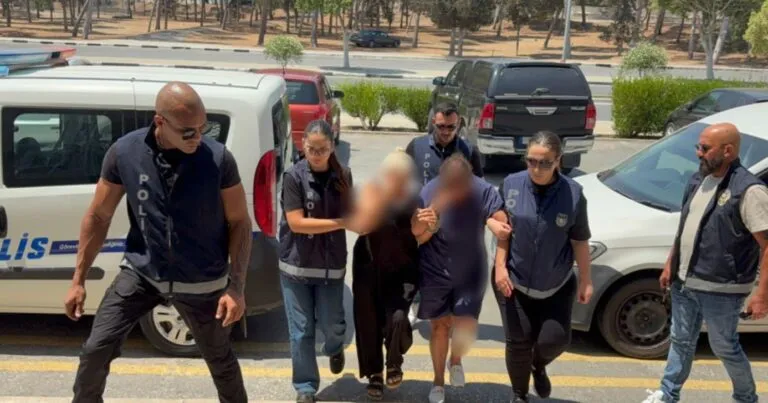The arrests of five Greek Cypriots in the Turkish-occupied areas have triggered strong reactions in Cyprus, with political leaders, sports organisations and business groups calling for international intervention. At the same time, Nicosia has chosen to pursue a low-profile strategy, focusing on diplomatic channels rather than escalating public rhetoric.
Among those detained are Andreas Kyprianou, vice president of a sports association, and Akis Grigoriou, the director of the team’s stadium, along with their wives. The arrests, which took place on 19 July, have been denounced as fabricated and politically motivated, while the humanitarian dimension of the case has also been highlighted.
In a statement, the association stressed: “These are elderly individuals with proven health problems. Their mental health has suffered a huge blow from the prolonged and unjustified deprivation of their basic freedoms, as well as from the deliberate delays imposed by the occupying authorities for their own purposes.”
The association urged the government not to relent in its efforts: “Unfortunately, our political and diplomatic moves have not yet yielded the desired outcome. We ask the state to intensify its efforts and apply pressure in every direction.”
A wave of solidarity followed. The Cyprus Olympic Committee, the Cyprus Sports Organisation, the Basketball Federation, several sports clubs and associations, and the Cyprus Chamber of Commerce and Industry (KEVE) all issued statements of concern. KEVE, in particular, called for immediate international intervention, arguing that the continued detention violates basic human rights.
“KEVE calls on all competent authorities of the Republic of Cyprus, as well as the international community, to take all necessary action to put an immediate end to this unjustified detention,” the chamber said.
Two of the detainees have already been remanded for three months by the so-called “district court” of Trikomo, facing charges of causing disturbance, trespassing and alleged breaches of “data protection laws”. All five also face proceedings before the “military court” on charges of entering a military zone without permission.
Against this backdrop, House President Annita Demetriou has taken the matter directly to Europe. She has written to Roberta Metsola, President of the European Parliament, and Theodoros Rousopoulos, President of the Parliamentary Assembly of the Council of Europe, urging them to intervene.
In her letters, Demetriou described the arrests of the Greek Cypriots as a “premeditated political act of reprisal” against the Republic of Cyprus for prosecuting foreign nationals who have usurped Greek Cypriot properties in the occupies territories. She said the detention constitutes “a flagrant violation of international law and the fundamental human rights and freedoms of the displaced Greek Cypriots, who only wanted to visit their properties, under Turkish military occupation since 1974.”
She added that such methods are designed to intimidate displaced persons and prevent them from demanding restoration of their rights. This, she warned, directly undermines prospects for the resumption of Cyprus settlement talks and contradicts the UN Secretary-General’s call for confidence-building measures.
Instead, Demetriou argued, these actions align fully with Ankara’s two-state narrative and “ultimate goal of de jure partition of Cyprus.” She urged both Metsola and Rousopoulos to exert their influence for the immediate release of the detainees and for Turkey to meet its international human rights obligations.
The appeals come as a new UN-led process on Cyprus is slowly taking shape. A second informal meeting on the issue took place in New York on 16–17 July 2025, with a follow-up session expected later this year. UN Secretary-General António Guterres is due to meet with the leaders of Cyprus during the UN General Assembly in September.
Meanwhile, both sides continue discussions on confidence-building measures, including opening new crossing points and establishing a solar energy installation in the buffer zone, as well as cultural cooperation and the return of artefacts. UN envoy Maria Angela Holguín remains engaged in facilitating dialogue.
Cyprus has been divided since 1974, when Turkey invaded and illegally occupied its northern third. Repeated rounds of UN-led peace talks have failed to reach a settlement, with the last major attempt in 2017 at Crans-Montana ending inconclusively.

Also read: Detention of Greek Cypriots extended by pseudo-state court
For more videos and updates, check out our YouTube channel.


